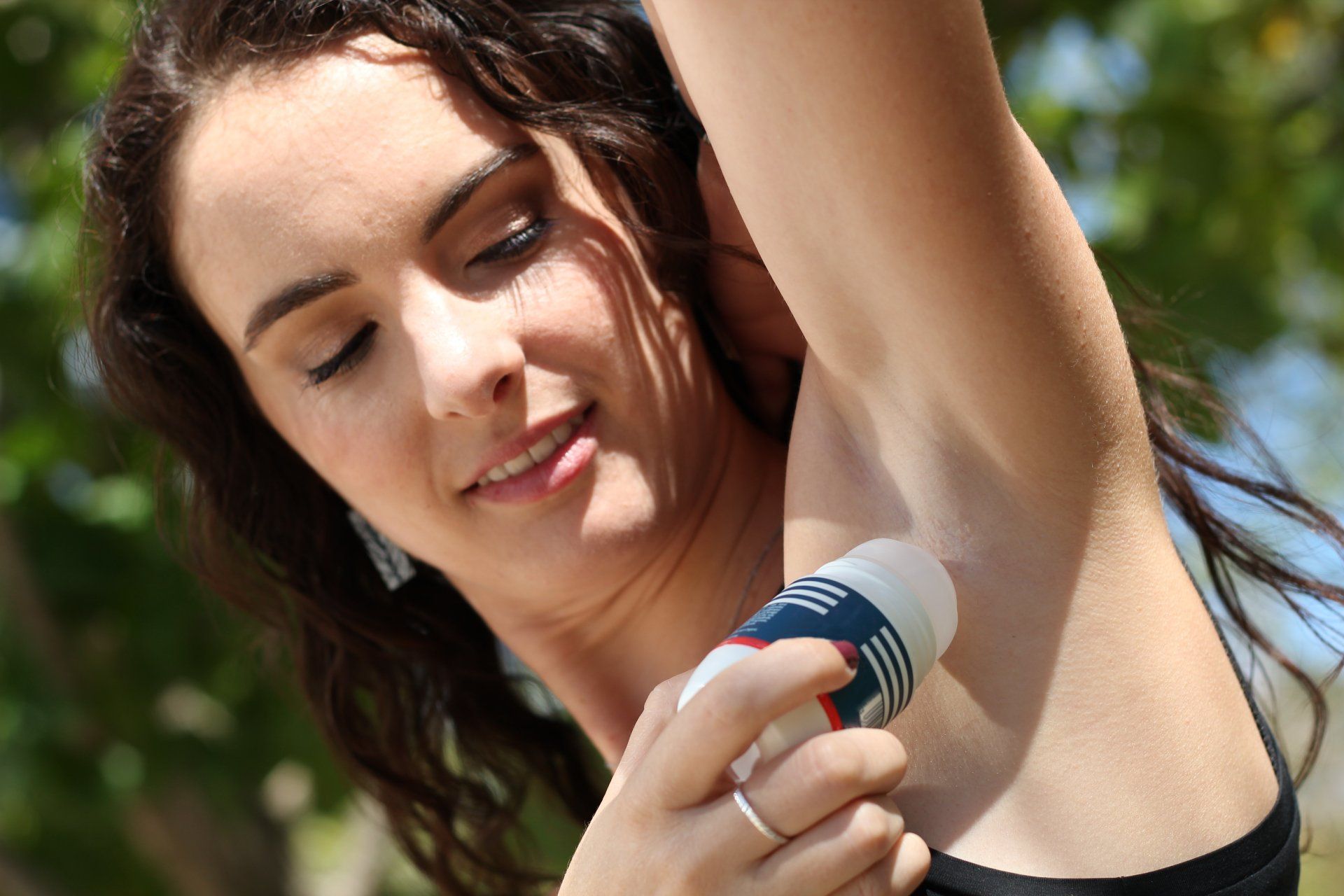No Sweat! ... despite the heat...
We were surprised to learn that scientists only discovered the cause of smelly armpits last year, in July 2020!
The University of York (UK), in collaboration with Unilever R&D (Bedford, UK), identified a unique enzyme responsible for the production of molecules that cause armpit body odor (BO). Their research also determined that BO is not a modern problem but may have existed prior to Homo sapiens.
Researchers knew that Staphylococcus hominis, bacteria that is part of the human armpit microbiome, eats an odorless compound (Cys-Gly-3M3SH) produced by human sweat glands and that it releases foul-smelling thioalcohol (3M3SH) as a byproduct. But how exactly S. hominis carries out this conversion was unknown until last year.
To find out more, the team delved inside S. hominis to learn how it makes thioalcohols. They discovered an enzyme (called C-T lyase) that converts Cys-Gly-3M3SH to 3M3SH. They then identified the gene in S. hominis that codes for the enzyme and they inserted it into another armpit resident which reportedly does not produce any odor, Staphylococcus aureus. Result: BO was made by S. aureus -- which meant that they had found the culprit enzyme!
University of York co-author Dr. Michelle Rudden commented: “Solving the structure of this ‘BO enzyme’ has allowed us to pinpoint the molecular step inside certain bacteria that makes the odor molecules. This is a key advancement in understanding how body odor works and will enable the development of targeted inhibitors that stop BO production at source without disrupting the armpit microbiome.”
Unilever co-author Dr. Gordon James said: "This research was a real eye-opener. It was fascinating to discover that a key odor-forming enzyme exists in only a select few armpit bacteria —and evolved there tens of millions of years ago."
“All we can say is this is not a new process. BO was definitely around while humans were evolving,” co-author Professor Gavin Thomas from the University of York told The Guardian (newspaper in the UK). “It’s not impossible to imagine these were important in the evolution of humans. Before we started using deodorants and antiperspirants, in the last 50 to 100 years, everyone definitely smelled.”
We’ve heard that perfumes were used extensively in 15th century Europe by royalty and the upper class, when personal sanitary practices of the day did not keep up with an increased aversion to the scent of BO. Fast forward to today, where we appreciate modern perfumery and rely on science. Our knowledge of chemistry and biology allows us to combat BO in two ways: anti-perspirants and deodorants.
- Anti-perspirants contain aluminium-based compounds that temporarily block sweat pores. Without sweat, the bacteria in our armpit microbiome does not survive well. Some anti-perspirants also contain fragrants.
- Deodorants, usually alcohol based, work by making the armpit region too acidic or salty for the bacteria that usually live there, thereby eliminating odor but not perspiration. Deodorants may also contain perfumes.
To note, humans have two types of sweat glands, the eccrine sweat glands and the apocrine sweat glands. The eccrine glands regulate body temperature – when internal temperature rises, the eccrine glands secrete odorless water to the skin surface, where heat is removed by evaporation. Our apocrine glands, on the other hand, are associated with hair follicles and they secrete a fatty sweat into the gland tubule. Emotional stress causes the tubule wall to contract, expelling the fatty secretion onto the skin, where S. hominis and other bacteria live.
In humans, the apocrine sweat glands are concentrated in the underarm and in genital regions. These glands are inactive until they are stimulated by hormonal changes in puberty.
So, for those of you needing a BO solution, we carry multiple options at The Pharmacy at Wellington:
- Traditional anti-perspirants
- Traditional deodorants
- An effective deodorant made of a proprietary combination of natural herbs and essential oils, hypo-allergenic and suitable for delicate skin
- A foot deodorant cream that is alcohol and paraben free, suitable for sensitive skin, and that works (one of our pharmacists' son vouches for this -- his feet don’t stink anymore!)
Ask to have one of these products included in your bag when you check out at our drive-thru!
References and Resources:
- https://www.nature.com/articles/s41598-020-68860-z
- https://www.york.ac.uk/news-and-events/news/2020/research/enzyme-body-odour/
- https://www.biotechniques.com/biochemistry/working-up-a-sweat-key-enzyme-responsible-for-body-odor-identified/
- file:///Users/AH/Downloads/2020-07-life-pits-scientists-key-enzyme.pdf
- https://www.theguardian.com/science/2020/jul/27/know-sweat-scientists-solve-mystery-behind-body-odour
- https://www.sciencemag.org/news/2020/07/scientists-discover-secret-behind-bad-body-odor
- https://meaww.com/scientists-bacteria-pungent-body-odor-humans-stinky-armpit-deodorant-study-university-of-york
- https://www.derryjournal.com/health/scientists-have-discovered-exactly-what-causes-body-odour-2926092
- https://en.wikipedia.org/wiki/History_of_perfume
- https://www.britannica.com/science/sweat-gland#ref146359
- https://www.mayoclinic.org/diseases-conditions/sweating-and-body-odor/diagnosis-treatment/drc-20353898





